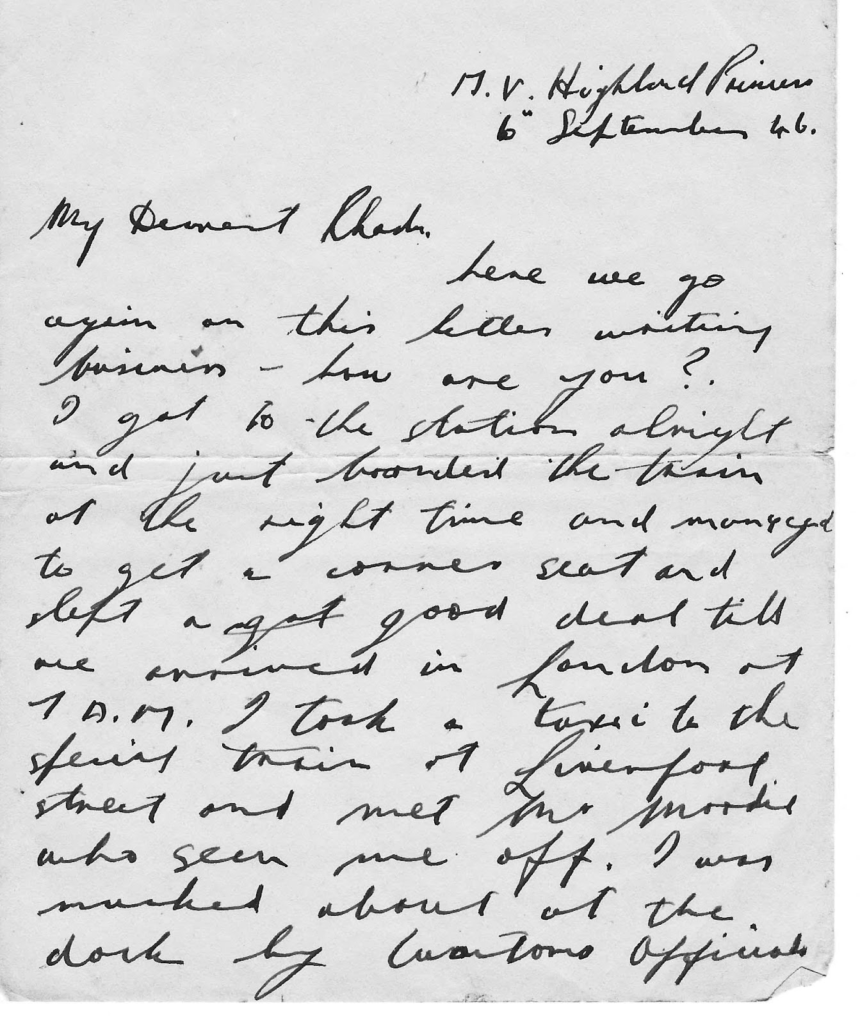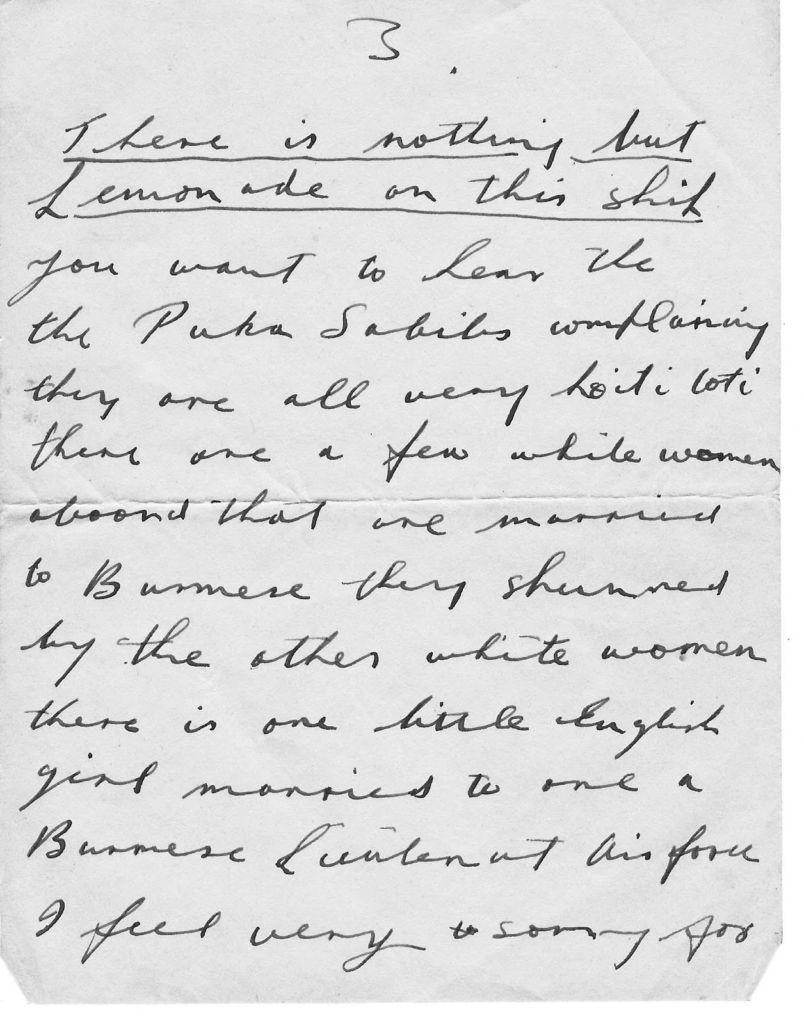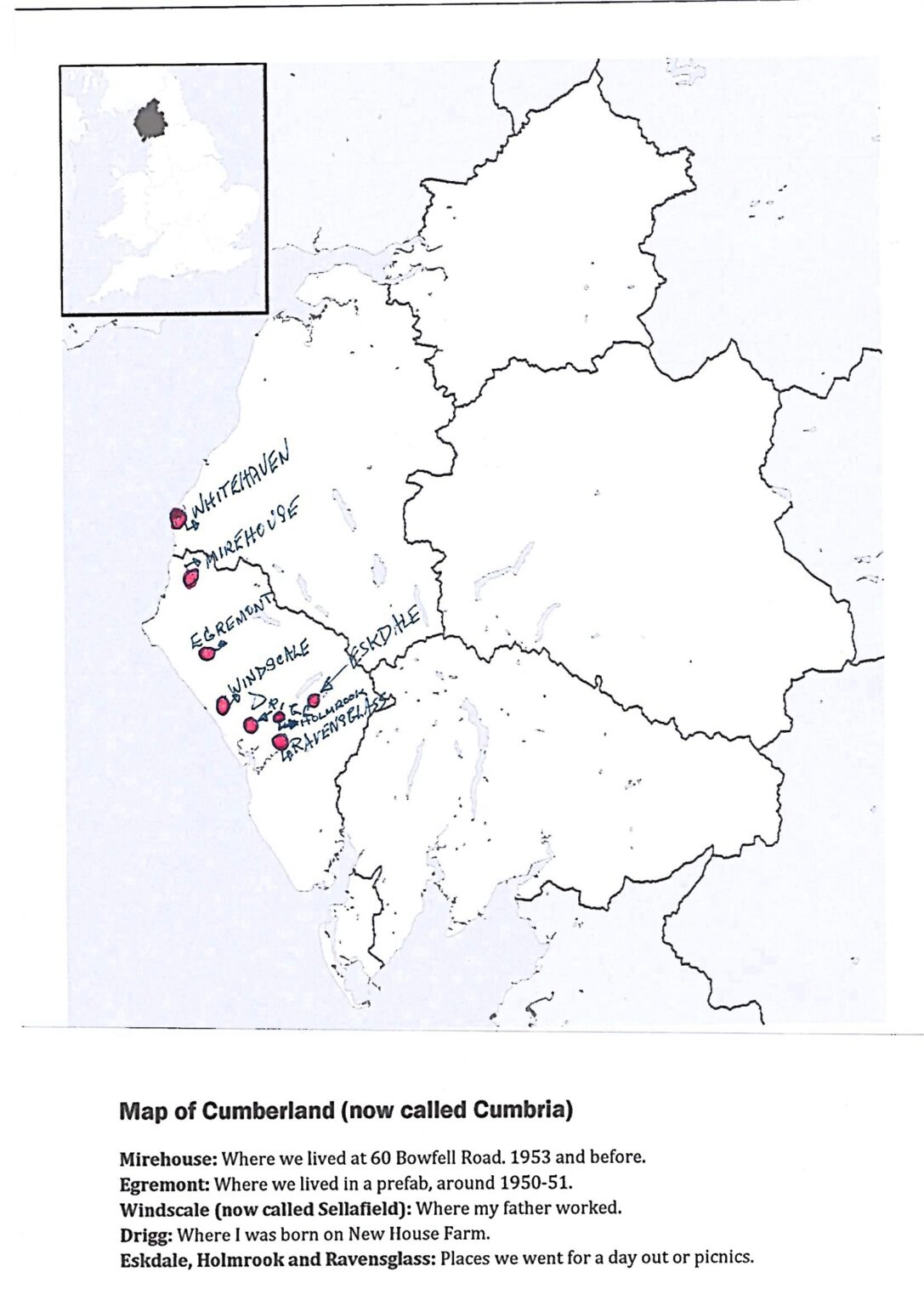The letters between my mother and father during the war are far from complete. My father hasn’t kept all the letters sent to him by my mother. Some of the letters have pages missing. In other words, the letters could never become an epistolary novel, as many of the meanings of what is written are lost due to the lack of context. I shall call them love letters in these posts.
For once, my father has dated some of the letters, perhaps feeling there was something auspicious about his new job in Burma.
Letter from Highland Princess, dated 6 Sept. 1946
This seems to be the first letter he wrote from his 1946 trip to Burma. This letter was written on board the Highland Princess on September 6, 1946. I had imagined that my father was still in the navy, as this ship was used to transport troops. But according to his ‘demob certificate’, he left the navy some weeks before on 12 July 1946. Besides, there were also photos of my father in his naval uniform on the Highland Princess taken in 1945. However, it seems not unlikely that he just sailed on this same ship several times.
There is a Rangoon Electric Tramway letter that seems to clear up some confusion, at least. It shows that he indeed sailed to Rangoon at this time. The note contained:
Rangoon Electric Tramway & Supply Co. Ltd.69
507 Merchant Street
P.O. Box 219
Rangoon
Page 1

Page 3
The first page doesn’t say an awful lot, and then he jumps to page 3?! I can manage to read my father’s scrawl, but I wonder if my mother found it so easy?
Page 3

On Page 3, it starts to get interesting! Here, my father mentions ‘pukkah sahibs’, and says they are all ‘hoiti toiti’. ‘Pukka sahib’ is a slang term taken from the Hindi words for “master”. This may also mean “true gentleman” or “excellent fellow.” The expression was used in the British Empire to describe Europeans; it was also used to describe an attitude which British administrators were said to affect, that of an “aloof, impartial, incorruptible arbiter of the political fate of people in the colonies.”
In other words, the ‘pukka sahibs’ my father is referring to, are the British ‘masters’ who behave arrogantly in their rule as ‘masters’ of colonial peoples. This agrees with the views of George Orwell who commented in his novel “Burmese Days” that it was a “pose”.
My father then goes on to say that: “There are a few white women aboard that are married to Burmese men. They are shunned by the other white women. There is one little English girl married to a Burmese lieutenant (Air Force). I feel very sorry for.”
This is quite a complicated topic, which Orwell also focused on in his novel “Burmese Days”. Orwell, however, focused mainly on the relationship between British men and Burmese women; such relationships were looked down on. Interesting in this context is the institution of the ‘English Club’ in the colonies, which Orwell describes as “the seat of English power.” Colonials had limited access to the ‘English Club’.
Social Conscience
My mother was certainly a reactionary. She talked deprecatingly about Australians, the Irish, the Welsh, the Americans (at least before my eldest brother moved to the US), miners, lesbians, and so on. The list is a long one! For as many years as I can I remember, she read the right-wing tabloid, the “Daily Express”. From what I know, she didn’t hold deep political views. All she did was regurgitate the garbage presented every day in the “Express”.
The point I’m trying to make here is that I had also imagined that my father was a ‘reactionary’, although he never talked about politics as far as I can remember. But on reading his comments in this letter when he was 30 years old, he seems to have had a ‘social conscience’ that I wasn’t aware of. It just goes to show that one never really ‘knows’ one’s parents.
I can also remember my elder brothers commenting that my father was a ‘different’ person in other social contexts. In other words, within the framework of the family, he had been given the role of ‘punisher’ (by my mother) and breadwinner. But in his private life, separated from my mother, he was perhaps a completely different person!
69 The Rangoon Electric Tramway was nationalised as part of the Rangoon Electricity Supply Board in 1953 and, following prolonged wrangling over compensation for the shareholders, the Rangoon Electric Tramway was dissolved in 1961. https://wiki.fibis.org/w/Rangoon_Tramway,_Burma
71 Marked by an air of assumed importance.
72 This paragraph was edited from the following website: https://en.wikipedia.org/wiki/Pukka_sahib
73 https://en.wikipedia.org/wiki/Pukka_sahib
74 “Representation of the other in George Orwell’s Burmese Days” by Fatma Kalpakh https://www.sciencedirect.com/science/article/pii/S1877042815007910/pdf?md5=dc3fc11b0498bb0244b5c5a14b02391d&pid=1-s2.0-S1877042815007910-main.pdf



